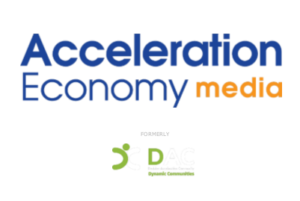Biz Apps Partner Marketing Workshop Delivers Microsoft Insights, Business Growth Strategies Through Content Marketing, Thought Leadership Tactics
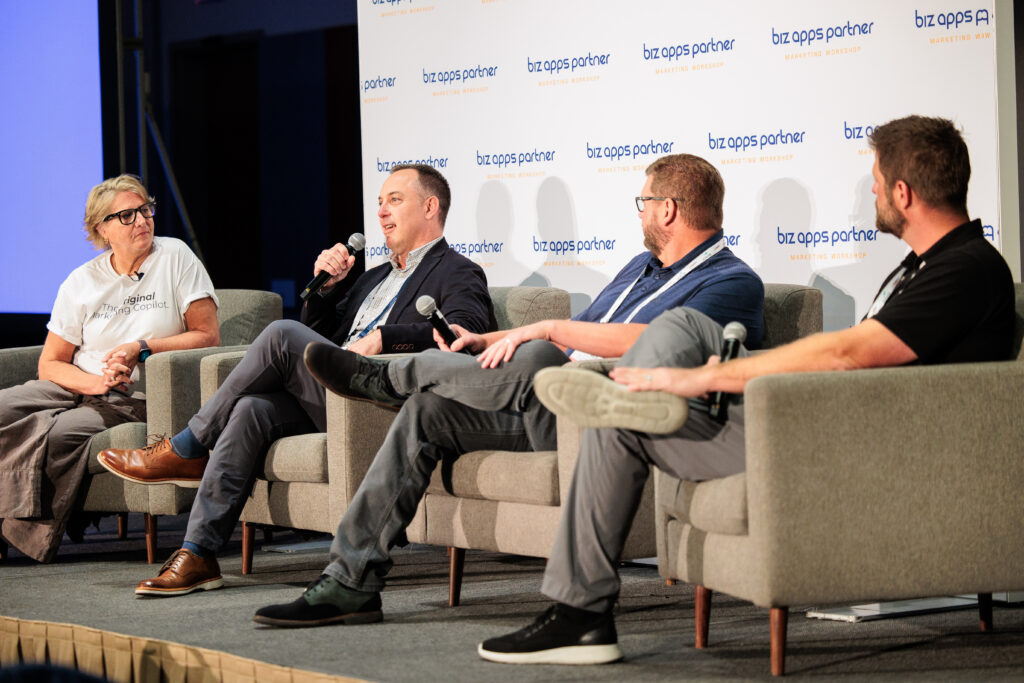
As a follow-up to the July 2024 Biz Apps Partner Summit co-created with Microsoft, Community Summit NA 2024 kicked off with the Biz Apps Partner Marketing Workshop on Sunday, October 13. This six-hour preconference – intended for consultants, systems integrators (SIs), and ISVs – brought in Marketing CoPilot CEO and Founder Marie Wiese, community thought-leaders, and partners defining the strategies that drive tangible results, lead generation, content creation, account-based marketing, and more.
Partner Insights from Microsoft
Microsoft took to the stage to deliver an overview of the market landscape and key partner programs that are enabling new opportunities. Mike Morton, VP, Dynamics 365 Business Central & SMB, spoke specifically to one of the fastest-growing cloud ERPs – Business Central.
With over 40,000 customers using Dynamics 365 Business Central, Morton discussed specific trends impacting customers and how Microsoft is reacting to these trends to support its partners. A key trend and priority for Microsoft is artificial intelligence, and more specifically, Morton defined how Microsoft Copilot is being infused into the platform, as AI capabilities serve as an entry point for sales and marketing efforts. He explained how Microsoft is helping customers leverage AI; by building more out-of-the-box Copilots and working towards providing more AI solutions, as the AI tools are already readily available.
Beyond the focus on AI, Morton identified two other key priorities from a Business Central perspective:
- Driving scale and greater reuse
- Cloud migration
The timing of migrations is critical, explained Morton. The benefits of moving to the cloud are becoming more evident as the cloud matures – and it’s already “pretty mature’ — both from a cost and security perspective. As it relates to security, he explained that Microsoft’s complex software security is hard to replicate in on-prem environments. Further, migrating to the cloud enables greater opportunities to leverage AI, as it serves as a means to grow businesses and attract more customers.
Following Morton’s session, Pam Johnson, Senior Channel Partner Marketing Manager, Microsoft, and Adriana Bade, Director, Partner Marketing, Microsoft, delivered the “Microsoft Partner Marketing Keynote.” Johnson and Bade defined a range of partner resources, programs, solution plays, partner designations and specializations, and key changes for FY25.
Bade described Microsoft’s “big bets” for FY25, including:
- Role-based extensions for Copilot
- Competitive takeouts
- Power Platform acceleration
- Scaling business operations
- ERP migrations
Further, Microsoft’s six solution plays were explained across the portfolio of business applications:
- Innovate with AI in low-code
- Accelerate revenue generation
- Modernize ERP
- Modernize Service
- Scale business operations
- AI-powered business with Copilot
For partners, Johnson gave an overview of the Microsoft AI Cloud Partner Program (MAICPP), which serves as a foundation for growth and profitability. She reviewed designations and specializations and the path to obtaining both. Designations, which are measured across three key areas – performance, skilling, and customer success – are required before obtaining a specialization, which demonstrates a deep, technical expertise.
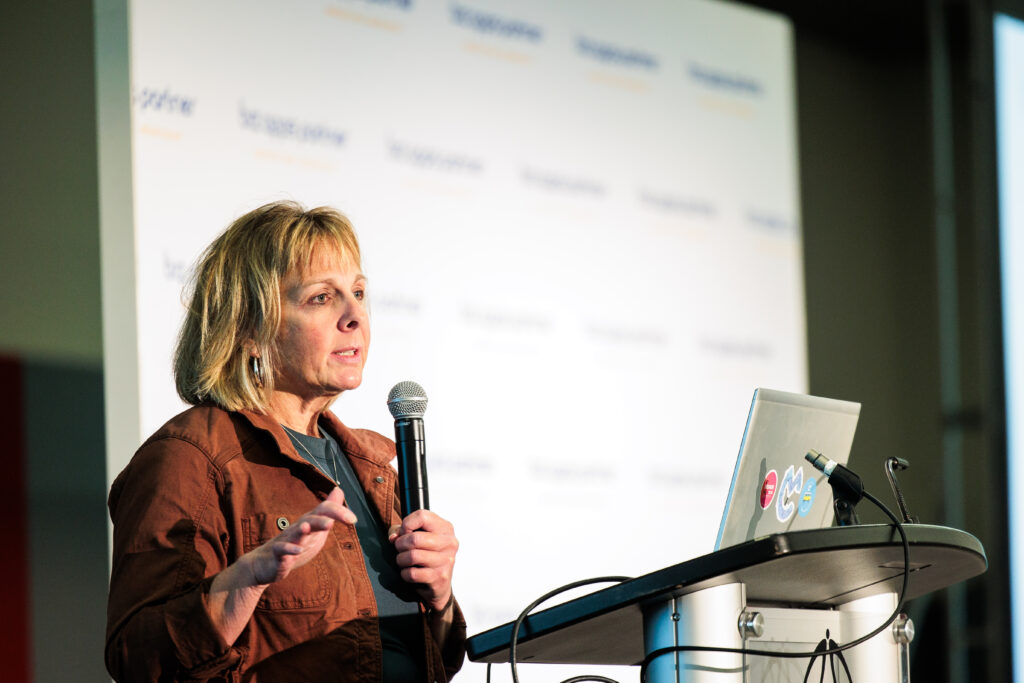
Additionally, Johnson reviewed funded engagements – for which win rates increase 36% with customers when running funded engagements –, Microsoft commerce incentives (MCI) and programmatic updates for FY25.
Boosting Customer and Prospect Engagement
Marie Wiese was joined by Marketing CoPilot colleagues El Bush, Marketing Coordinator, Suzy Tarrant, Revenue Operations, and Maddie Yule, Community & Publishing Manager for a panel discussion on boosting customer and prospect engagement.
The panel discussed Marketing CoPilot’s formula for revenue growth, the customer acquisition landscape, critical changes to buyer behaviors, and shared insights into driving marketing growth in business.
The growth formula, 1b (3t x 3a) + (3p + 3i + 3c) = IR, was defined by the following variables:
- B = buyer persona
- T = buyer triggers
- A = attribution touchpoints
- P = partners to co-market
- I = company influencers
- E = events
- IR = increased revenue
Panelists defined in further detail each of these variables and how they relate to content and marketing strategy. Wiese reiterated the importance of differentiating your organization within the marketplace and the dire need to have a compelling value proposition, which dictates why a customer or prospect should buy from your company.
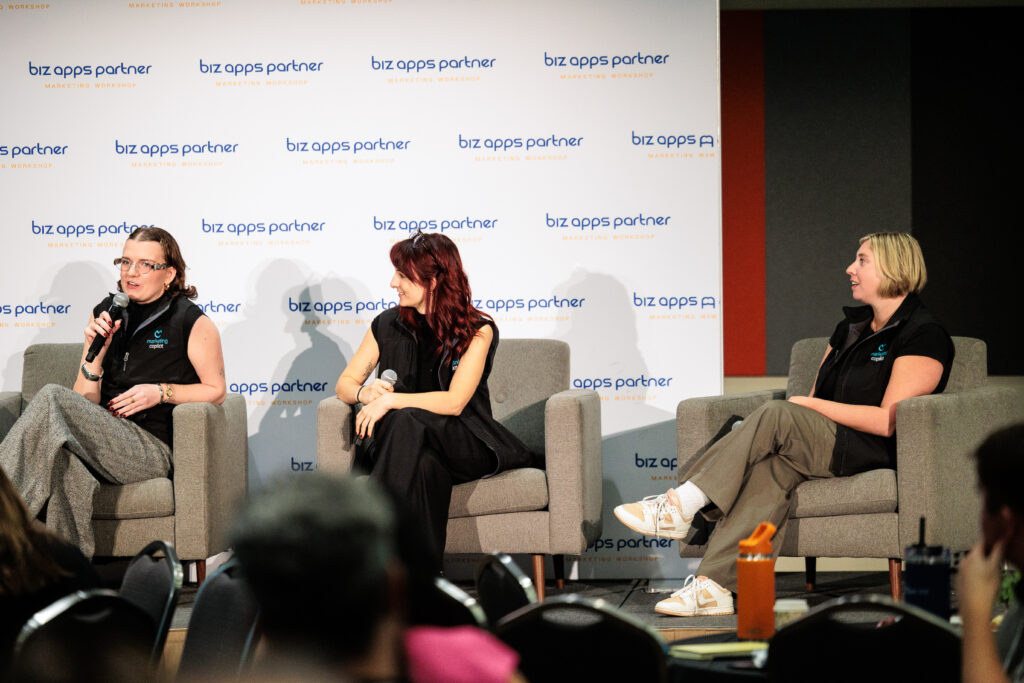
Emphasizing the need for a strong value proposition, the panel expressed why and how a content marketing strategy should lead back to this exact thing. “What you do doesn’t matter to prospects, but the problems you’re solving for them does,” noted Wiese. The biggest thing that Microsoft partners get wrong in marketing is that the marketing content strategy fails to speak to the partner’s value in addition to what customers need. When considering your “content marketing checklist,” it’s important to consider the following stages:
- Awareness
- Consideration
- Conversion
Lastly, the panel defined key considerations for gaining new prospects, given that engagement levels have significantly dropped – what previously required 5-7 touches to reach engagement with customers now requires 21-30:
- It requires (only) 2 seconds to engage someone on LinkedIn before they keep scrolling
- Focus on content types that resonate with the broader audience
- Short-form content
- People-centric posts
- Videos and alternate media
- Humor and relatability
One message remained clear – people want to buy from people, which was a sentiment expressed heavily throughout the preconference.
AI for Migration Considerations, Implementation Discussions
The Partner Marketing Group’s Cheryl Salazar, Partner, EVP, Channel & Marketing Strategy, and Michelle Glennie, Co-Founder, Partner, COO, explored the ways in which AI can be used as a door opener for migration and implementation discussions. To start, Glennie explored the how and why behind AI and Copilots becoming a viable way to start a client discussion that leads with intelligence to create demand for both ISV and SI solutions.
Salazar explained that organizations often don’t take the time to educate employees on the technology (AI) itself, as they’re too focused on the customer, but this tech education can yield great benefits for an organization. “Having employees utilize those tools and new solutions is a great way to help develop people as well.” She described various partner resources and learning opportunities, such as the Microsoft Garage, as a means to achieve this.
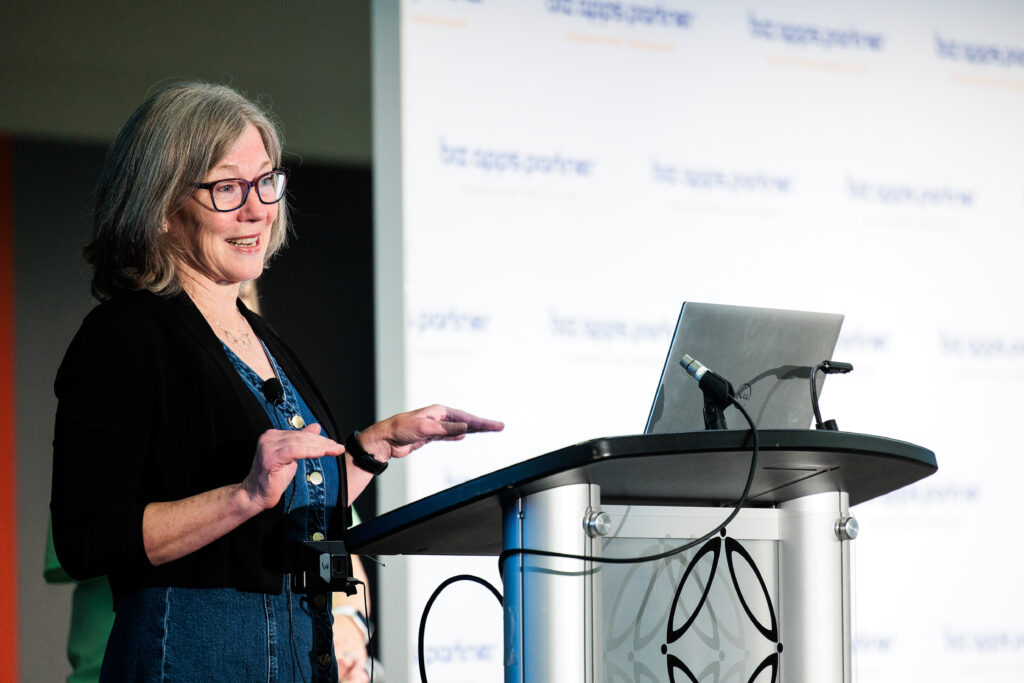
She shared a variety of use cases of companies that have utilized Microsoft Garage to create new outcomes for customers. MARS, the candy bar manufacturer, is a user of D365. Salazar explains that all employees are trained on Innovation Hub, working with its IT department on prototypes, and utilizing technologies like Copilot Studio inside of Innovation Hub to deploy them company-wide. Estée Lauder, a cosmetic company, is following similar practices but working with AI assistants to identify already-existing cosmetic recipes that relate to common trends, as opposed to creating something net-new.
To round out the session, Glennie discussed the biggest barriers to creating original marketing content, including but not limited to :
- Lack of time
- Lack of internal resources
- Lack of ideas
- Lack of writing expertise
She shared that the best types of marketing content are blogs and case studies, whereas use cases have significantly reduced in effectiveness. Glennie suggested working with sales and implementation teams to craft case studies, placing a strict focus on “taking the software out” and focus on the customer’s problems to address as a solid means of surfacing information from content.
Once again, the theme of “people buy from people” was a theme that reigned true in this session.
Driving Thought Leadership, Tips and Tricks for Account-Based Marketing
Candyce Edelen and Phil Donaldson of PropelGrowth took to the stage to explain that in today’s marketing landscape, capturing customer attention is becoming increasingly difficult. With an overwhelming amount of content available, buyers have become increasingly used to blocking out traditional marketing efforts. To overcome this, businesses need to focus on building trust through thought leadership, which was the focus of their discussion, “Improve Lead Gen Results Through Thought Leadership.”
To overcome this, Edelen reiterated that businesses must focus on building trust through thought leadership. Buyers prefer to engage with vendors who demonstrate a deep understanding of their needs and offer valuable insights, rather than pushing sales.
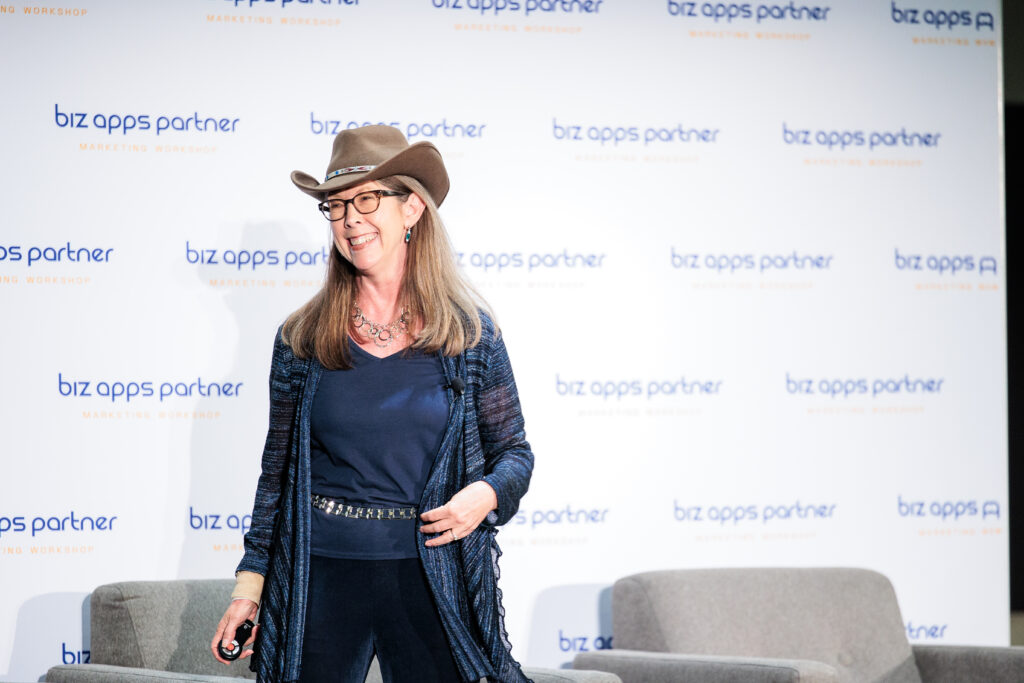
By providing relevant and personalized content that aligns with customer preferences, Donaldson explained how companies can position themselves as the “natural choice” for buyers. Thought leadership not only builds credibility but also creates willingness among buyers to pay a premium for services, making it a critical marketing strategy.
Further, effective thought leadership requires a team effort, where diverse perspectives and purpose-driven content help build the brand’s authority. Personalized content, amplified through MVPs (Most Valuable Professionals) and key influencers, can significantly increase engagement, especially with “lurkers”—those who observe but don’t actively participate.
A case study from Kevin Pritchard and Jacob Pepper of Fidesic AP, an AP Automation ISV, highlighted the importance of blending company and individual leadership to foster community engagement, resulting in a 20% increase in LinkedIn followers.
Furthermore, Account-Based Marketing (ABM) strategies are essential for aligning sales and marketing teams, focusing on understanding buyer personas, and driving targeted efforts to expand reach and attract new leads.
To round out the event, Matt Abbott, EVP, Sales & Marketing, Ciellos, John Clark, VP, Sales & Marketing, Advanced Business Solutions, and Jeff Ney, President, New Dynamic, joined Marie Wiese to share their tips and perspectives on executing Account-Based Marketing (ABM).
While it’s conceptually understood, panelists explained that it’s rarely executed in a way that demonstrates the understanding. Ney, Abbott, and Clark shared critical learnings from their ABM executions over the last 24 months and defined the tools that are available to partners looking to apply an AMB approach to their businesses and important considerations for “tipping the ABM scale” toward an increased number of deals.
Final Thoughts
The Biz Apps Partner Marketing Workshop unveiled key insights from a range of perspectives – Microsoft, partners, ISVs, systems integrators (SIs), and more. Focused on strategies for driving business growth through AI, cloud migration, and content marketing, the event highlighted the importance of a strong value proposition, and effective marketing strategies, including Account-Based Marketing, and thought leadership, to engage customers and prospects in an evolving digital landscape. Finally, thank you to our preconference sponsors, RSM and Red Maple.


